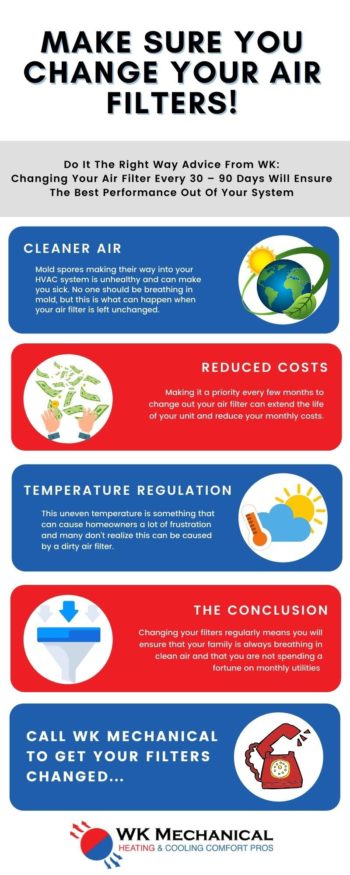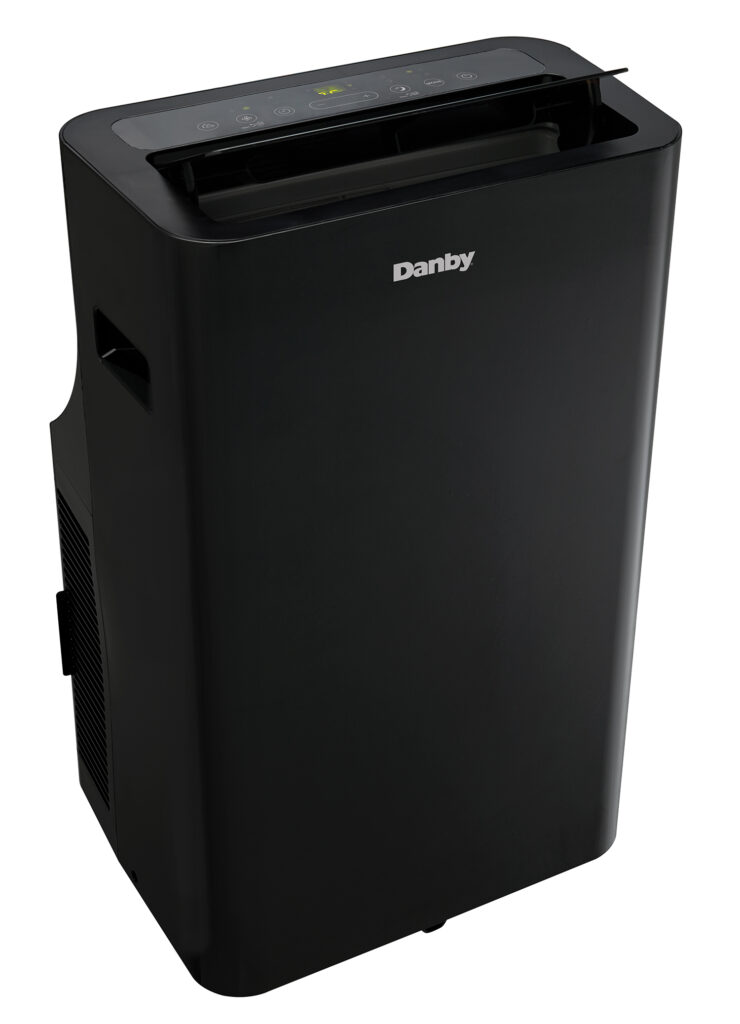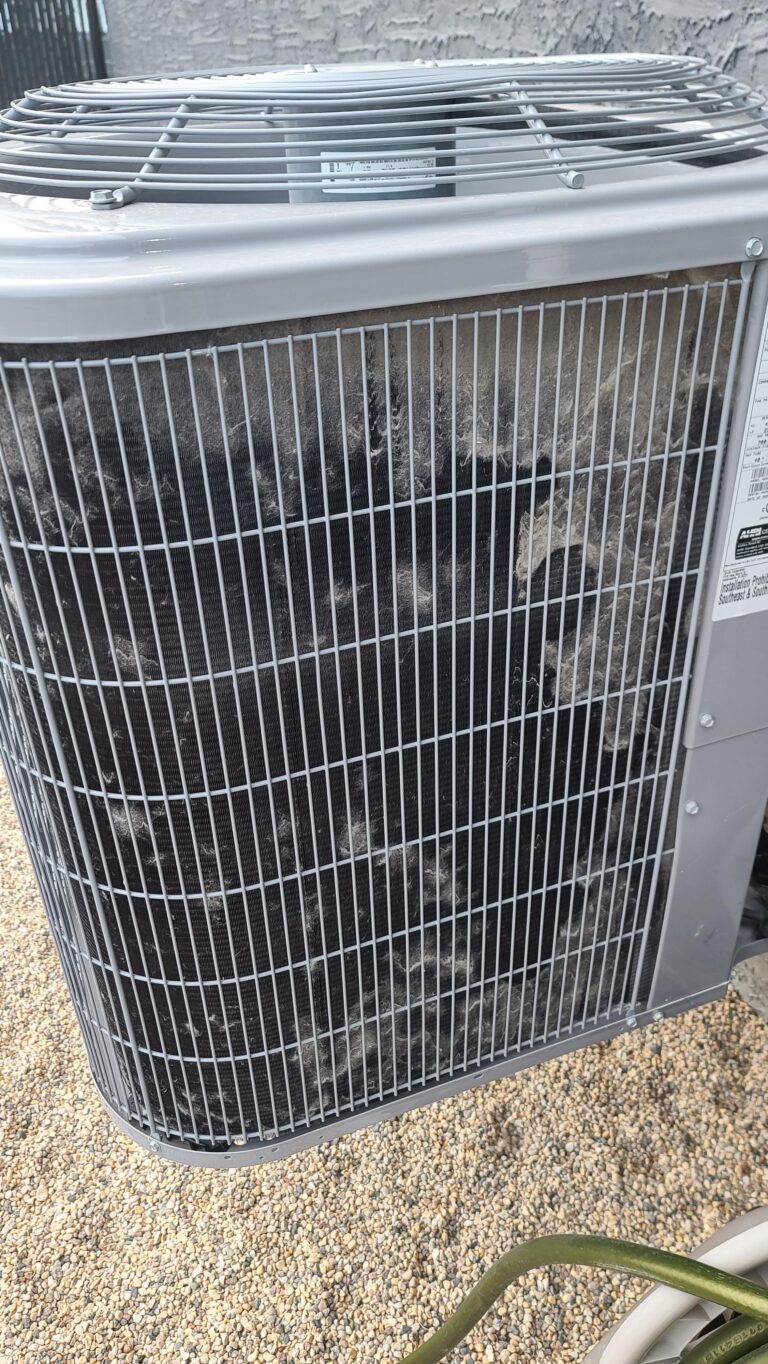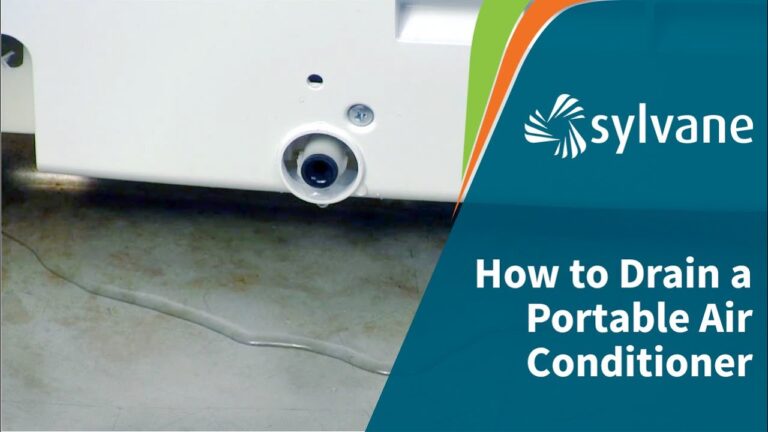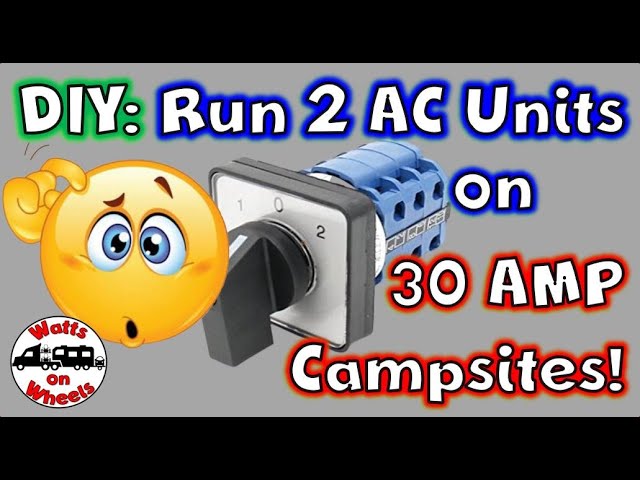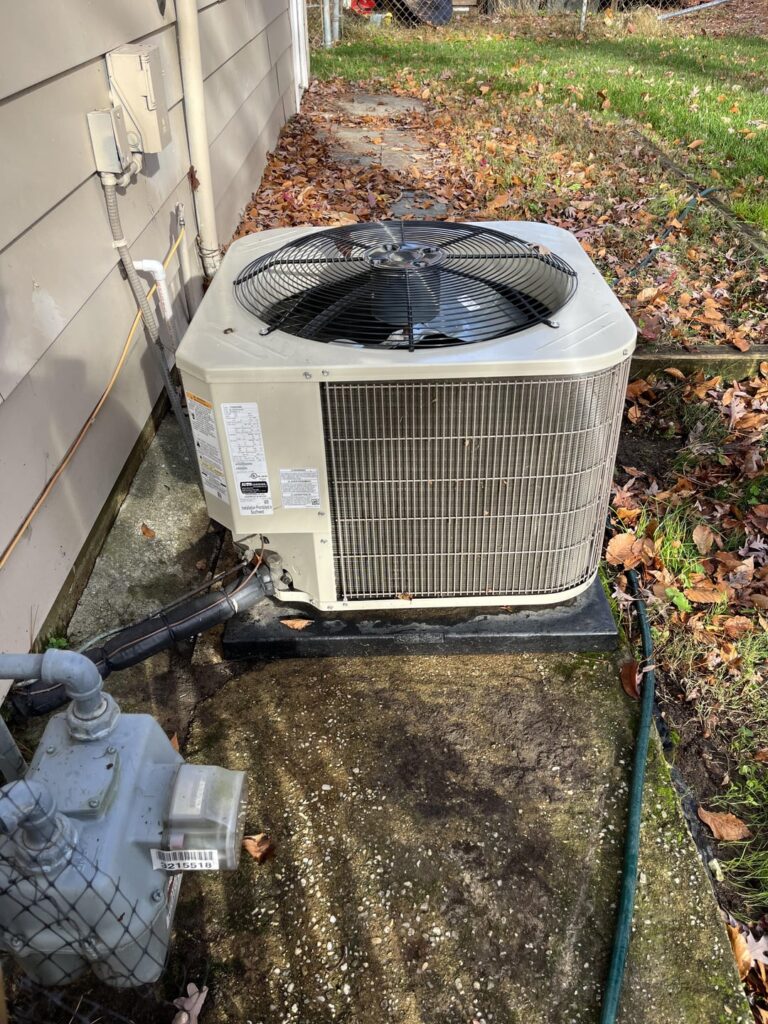Can A Dirty Air Conditioner Filter Make You Sick?: Hidden Dangers
A dirty air conditioner filter can make you sick. It can circulate dust, allergens, and bacteria in your home.
Air conditioner filters play a crucial role in maintaining indoor air quality. Dirty filters can trap and circulate harmful particles like dust, pollen, and bacteria. These contaminants can cause respiratory issues, allergies, and other health problems. Regularly changing or cleaning filters ensures cleaner air and better overall health.
Neglecting this simple maintenance task can lead to increased energy bills and reduced efficiency of your air conditioning system. Keeping your air conditioner filter clean is essential for a healthy living environment. Prioritize this routine to breathe easier and enjoy a more comfortable home.
Introduction To Air Conditioner Filters
Air conditioner filters are vital for clean indoor air. They trap dust, pollen, and other airborne particles. A clean filter ensures efficient cooling and healthy air. But, a dirty filter can harm your health.
Role Of Filters
Filters play a crucial role in your air conditioning system. They block harmful particles from entering your home. This keeps the air you breathe free from allergens and pollutants. Here are some key roles of filters:
- Trapping dust and pollen
- Reducing allergens
- Improving air quality
- Ensuring efficient system performance
Common Types
There are different types of air conditioner filters. Each has unique features and benefits. Below is a table showing common filter types:
| Filter Type | Features | Benefits |
|---|---|---|
| Fiberglass Filters | Basic, disposable, low cost | Good for trapping large particles |
| Pleated Filters | More surface area, better filtration | Traps small particles effectively |
| HEPA Filters | High efficiency, removes 99.97% particles | Best for allergies and asthma |
| Electrostatic Filters | Uses static electricity, washable | Reusable, effective particle trapping |
Choosing the right filter type is essential. It ensures clean air and efficient cooling.
How Filters Get Dirty
Understanding how air conditioner filters get dirty is essential. Clean filters keep your home healthy. Dirty filters can make you sick. Let’s explore the main reasons why filters get dirty.
Dust And Debris
Dust and debris are the primary culprits. Your air conditioner draws air in. It filters out dust particles. Over time, these particles clog the filter. This reduces the filter’s efficiency.
Common sources of dust include:
- Household dust from skin cells and fabric fibers
- Pet hair and dander from your furry friends
- Pollen from plants entering through windows
Regular cleaning is crucial. It prevents these particles from accumulating. A clogged filter can lead to poor air quality.
Environmental Factors
Environmental factors also contribute to dirty filters. Your location and surroundings matter. Urban areas have more pollution. Rural areas may have more pollen.
Consider these environmental factors:
| Factor | Impact |
|---|---|
| Construction sites | Increase in dust and debris |
| Traffic pollution | More airborne pollutants |
| Plant pollen | Seasonal spikes in particles |
Living near busy roads or industrial areas affects air quality. Filters get dirty faster in these conditions. Regularly check and replace your filter.
Health Risks Of Dirty Filters
A dirty air conditioner filter can be more than a nuisance. It can pose serious health risks. This section covers how a dirty filter can make you sick.
Respiratory Issues
A dirty filter clogs your air conditioner. This reduces airflow and traps pollutants. These pollutants include dust, mold spores, and bacteria.
When you breathe in these pollutants, it can cause respiratory issues. Symptoms include coughing, sneezing, and shortness of breath. People with asthma or bronchitis are at higher risk.
In severe cases, it can lead to infections. Your lungs can become inflamed, making it hard to breathe.
Allergic Reactions
Dirty filters can also trigger allergic reactions. The trapped dust and pollen can circulate in your home.
Common symptoms include runny nose, itchy eyes, and skin rashes. People with allergies will suffer more. They may experience more severe reactions.
In extreme cases, it can lead to anaphylaxis. This is a life-threatening allergic reaction.
| Health Issue | Common Symptoms |
|---|---|
| Respiratory Issues | Coughing, Sneezing, Shortness of Breath |
| Allergic Reactions | Runny Nose, Itchy Eyes, Skin Rashes |
Maintaining a clean air conditioner filter is crucial. It ensures cleaner air and reduces health risks. Always replace or clean your filter regularly.
:max_bytes(150000):strip_icc()/VWH-GettyImages-1372177735-c5c5df1ccc8c4efca4848b039d60e79b.jpg)
Credit: www.verywellhealth.com
Impact On Indoor Air Quality
A dirty air conditioner filter can have a significant impact on your home’s indoor air quality. This can lead to various health issues. Clean air is crucial for a healthy living environment.
Pollutants And Contaminants
When air filters are dirty, they fail to trap dust, dirt, and other pollutants. These pollutants circulate in the air you breathe. This can cause respiratory issues and allergies.
Dirty filters also allow contaminants like pet dander, pollen, and smoke particles to circulate. These contaminants can worsen asthma and other respiratory conditions. Keeping your air filter clean is essential for good health.
Mold Growth
A dirty air filter can create a moist environment, leading to mold growth. Mold spores can easily spread through the HVAC system. Breathing in mold spores can cause serious health issues. Symptoms include sneezing, coughing, and even respiratory infections.
Regularly changing your air filter helps prevent mold growth. This ensures the air you breathe is clean and free from harmful spores.
Signs Your Filter Needs Changing
Keeping your air conditioner filter clean is crucial. It ensures you breathe clean air. A dirty filter can cause various health issues. Here are the signs your filter needs changing.
Visible Dirt
A clear sign of a dirty filter is visible dirt. If you see dust and grime on the filter, it’s time to change it. A dirty filter can’t trap more pollutants. This means you are breathing in dirty air.
Reduced Airflow
Another sign is reduced airflow from your air conditioner. A clogged filter blocks air from passing through. This reduces the efficiency of your AC unit. You may notice that your home is not as cool as before.
| Sign | Description |
|---|---|
| Visible Dirt | Dust and grime are noticeable on the filter. |
| Reduced Airflow | Airflow from the AC unit is weaker than usual. |
Here are some other signs your filter needs changing:
- Strange odors coming from the vents.
- Increased energy bills without increased usage.
- Allergy symptoms worsening over time.
- Check your filter every month.
- Replace it every 1-3 months.
- Use high-quality filters for better air quality.
Credit: www.quora.com
Preventive Measures
Keeping your air conditioner filter clean is essential for your health. Dirty filters can cause various health issues. Here are some preventive measures to ensure your air conditioner keeps you healthy.
Regular Maintenance
Regular maintenance is crucial for the efficiency of your air conditioner. It helps keep the air you breathe clean. Follow these steps for regular maintenance:
- Check your air filter every month.
- Replace the filter if it looks dirty.
- Schedule professional servicing twice a year.
These simple tasks can prevent many health problems. Clean filters help remove dust, pollen, and other allergens.
Choosing The Right Filter
Choosing the right filter is vital for clean air. Not all filters are the same. Look for filters with a high MERV rating. Higher MERV ratings mean better filtration.
| MERV Rating | Efficiency |
|---|---|
| 1-4 | Basic filtration, removes large particles. |
| 5-8 | Better filtration, removes smaller particles. |
| 9-12 | High filtration, removes fine particles. |
| 13-16 | Superior filtration, removes very fine particles. |
Filters with MERV ratings of 9-12 are ideal for most homes. They strike a balance between cost and efficiency. Always check your air conditioner’s manual for the recommended filter type.
Long-term Effects Of Neglect
Neglecting your air conditioner filter can lead to serious health issues. It can also impact your air conditioner’s performance. This section explores the long-term effects of not changing your air conditioner filter.
System Efficiency
A dirty filter restricts airflow. This makes the system work harder. When the system works harder, it wears out faster. The unit may break down more often. It might not cool your home properly either.
Blocked airflow can cause the evaporator coil to freeze. This can lead to more costly repairs. Maintaining a clean filter keeps your system efficient.
Increased Energy Costs
Running a system with a dirty filter uses more energy. The system has to work harder to push air through. This means your energy bills will go up.
Changing your filter can save you money. A clean filter ensures the system runs smoothly. You’ll see a difference in your monthly bills. Keeping the filter clean is an easy way to cut costs.
| Effect | Details |
|---|---|
| System Efficiency | Dirty filters restrict airflow, causing the system to work harder. |
| Increased Energy Costs | More energy is used, resulting in higher bills. |

Credit: www.hydesac.com
Conclusion And Recommendations
After understanding the risks of a dirty air conditioner filter, it’s time to act. Keeping your air conditioner filter clean is crucial for health. Let’s explore healthy habits and professional services to maintain clean filters.
Healthy Habits
- Regular Cleaning: Clean or replace your filter every month.
- Check Air Quality: Use air quality monitors to track indoor air.
- Maintain Humidity: Keep indoor humidity between 30-50%.
- Use Air Purifiers: Air purifiers help reduce dust and allergens.
- Dust and Vacuum: Regularly dust and vacuum your home.
Professional Services
Sometimes, professional help is necessary to ensure thorough cleaning. Here are services you should consider:
| Service | Benefits |
|---|---|
| HVAC Maintenance | Professionals check and clean the entire system. |
| Air Duct Cleaning | Removes dust and mold from air ducts. |
| Filter Replacement | Ensures you always have a clean filter. |
By following these recommendations, you can breathe easier. A clean air conditioner filter means a healthier home.
Frequently Asked Questions
What Are The Symptoms Of Air Conditioning Sickness?
Symptoms of air conditioning sickness include headaches, dry throat, itchy eyes, fatigue, dizziness, breathing difficulties, and sinus congestion.
What Sickness Can You Get From Dirty Air Filter?
Dirty air filters can cause respiratory issues, allergies, asthma attacks, headaches, and sinus infections. They can also lead to fatigue and worsen existing health conditions.
Can A Dirty Air Conditioner Filter Make You Sick After?
Yes, a dirty air conditioner filter can make you sick. It circulates dust, allergens, and pollutants, affecting air quality.
Conclusion
Regularly changing your air conditioner filter is crucial for good health. Dirty filters can cause respiratory issues. Keep your indoor air clean and safe by maintaining your HVAC system. A small effort in filter maintenance can prevent potential sickness. Prioritize clean air for a healthier living environment.

